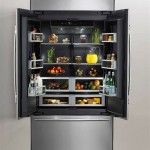Car Interior Heaters: Keeping You Warm on the Road
Car interior heaters are a vital component of modern vehicles, providing essential warmth and comfort during cold weather conditions. They play a crucial role in maintaining a pleasant interior temperature, enhancing driver and passenger safety, and ensuring optimal performance of certain car systems. This article explores the workings of car interior heaters, their different types, and the factors to consider when selecting the best option for your vehicle.
Types of Car Interior Heaters
Car interior heaters can be categorized into two primary types: conventional heaters and auxiliary heaters. Conventional heaters are integrated into the vehicle's standard heating, ventilation, and air conditioning (HVAC) system, while auxiliary heaters are separate units that provide supplemental warmth.
Conventional Heaters
Conventional heaters are the most common type found in cars. They utilize the engine's coolant to generate heat. The engine's coolant circulates through a radiator, where it absorbs heat from the engine. This heated coolant then flows through a heater core, a small radiator located within the HVAC system. Air is blown across the heater core by a blower fan, warming it before it is distributed throughout the cabin.
Auxiliary Heaters
Auxiliary heaters, also known as auxiliary heating systems, provide additional heat when the engine is not running or at low temperatures. These systems are typically used in vehicles that operate in extreme climates or for drivers who need to preheat their cars before driving. Common types of auxiliary heaters include:
- Electric heaters: These heaters use electricity to generate heat and are often found in electric vehicles (EVs) or as optional upgrades in gasoline vehicles.
- Diesel-powered heaters: These heaters are fueled by diesel and are typically used in commercial vehicles or in vehicles operating in harsh environments.
- Parking heaters: These heaters are designed to preheat the car's interior while it is parked, allowing drivers to start their journey in a warm environment. They are often controlled remotely via a timer or smartphone app.
Factors to Consider When Choosing a Car Interior Heater
When selecting a car interior heater, several factors should be considered to ensure optimal performance and comfort:
Heating Capacity
The heating capacity of a car interior heater is measured in kilowatts (kW) or British thermal units (BTUs). The required heating capacity depends on the vehicle's size, the climate, and the desired interior temperature. Larger vehicles and colder climates generally require higher heating capacities.
Fuel Efficiency
For conventional heaters, fuel efficiency is a significant consideration. Heaters that utilize the engine's coolant consume more fuel compared to auxiliary heaters, which often operate independently of the engine. Electric heaters are the most fuel-efficient option, but they require a charged battery.
Noise Levels
Noise levels can be a concern with some car interior heaters. Conventional heaters can generate a noticeable amount of noise, especially at higher fan speeds. Auxiliary heaters are generally quieter but can still produce some noise, depending on the model and operating conditions.
Cost
The cost of car interior heaters can vary widely depending on the type, features, and brand. Conventional heaters are typically included as standard equipment in most vehicles, while auxiliary heaters can be purchased as aftermarket upgrades or factory options.
Maintenance of Car Interior Heaters
Proper maintenance of car interior heaters is essential for their longevity and optimal performance. This includes regular checks of the following:
- Coolant levels: Ensure that the coolant levels are adequate and that the coolant is not contaminated.
- Heater core: Inspect the heater core for any leaks or blockages. A clogged heater core can reduce the efficiency of the heating system.
- Blower fan: Verify that the blower fan is operating correctly and that the fan blades are clean.
- Air filters: Replace dirty air filters to ensure proper airflow and prevent dust and debris from entering the cabin.
By understanding the various types of car interior heaters and considering the factors outlined above, drivers can make an informed decision about the best option for their vehicle. A reliable heating system ensures a comfortable and safe driving experience, especially during cold weather conditions.

I G Bauerhin Gmbh Interior Surface Heaters

Interior Heaters Compact And Efficient Termini Vehicle Defa

Interior Car Heater Cab Cargo Heaters

Why Is My Car Heater Not Working The Aa

Cozyqx Heater Air Heating Quickly Demister Suv Portable 12v Trucks Fast Car For Autotaxis Conditioners Interior Accessories Com

How Does A Car Heater Work Autozone

Heated Car Seats By Autoplex Restyling Special Deals

Heater For Car 1 Pc Heaters Indoor Use Lighter Re Fans Cars Inside Desk Fan The Vehicle Mounted Interior Small
:max_bytes(150000):strip_icc()/001-choosing-a-12-volt-car-heater-534768-e552e998a1fa48409808c86a2874ece5.jpg?strip=all)
Choosing A 12 Volt Car Heater

How Does A Car Heater Work Autozone








